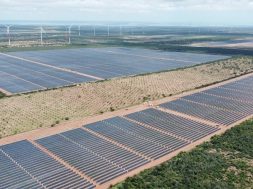
A report says that power generation will account for nearly 9 per cent of the water consumed in India by 2050
While India is already looking at another season of drought, the International Renewable Energy Agency (IRENA) has said that 85 per cent of the country’s power generation relies on freshwater.
IRENA’s estimate is based on a study which says that power generation is expected to account for nearly 9 per cent of the water consumed in the nation by 2050 from 1.4 per cent in 2025 if energy generation keeps growing at the current pace.
The report, titled ‘Water Use in India’s Power Generation: Impact of Renewables and Improved Cooling Technologies to 2030’, says, “Rapid growth in freshwater-intensive thermal power generation can contribute to water stress in the areas where plants are located.”
The report, which has been prepared by World Resource Institute and IRENA, suggests that the combination of improved power plant cooling technologies and renewable energy technologies could help the country lessen the intensity of fresh water use for electricity generation.
Another report, which has not been released yet, underlines the fact that water scarcity has already begun putting pressure on power generation. This study has been conducted by Vasudha Foundation, which will release it on November 29. It says that due to lack of water, India experienced loss of electricity generation of up to 26,287.49 million kWh from 2012-13 to June 2017.
The reason for pressure on coal power plants and fresh water availability is also because Indian power plants use an average of 4 meter cube/hour/MWh of water while the average water consumption in Chinese plants is 2.5 meter cube/hour/MWh, says the report.
As per the report, India’s 13 coal power plants with a cumulative installed capacity of 12,948 MW were shutdown in the year 2016-17 for various time periods due to water shortage and if weather prediction is anything to consider, the pressure on these coal power plants is going to increase further. The India Meteorological Department (IMD) had already declared that 255 districts of the country had recorded deficient rainfall in the just-ended monsoon. These districts account for 31 per cent of all the districts in India and there is a possibility that these districts will sooner or later face a drought.














